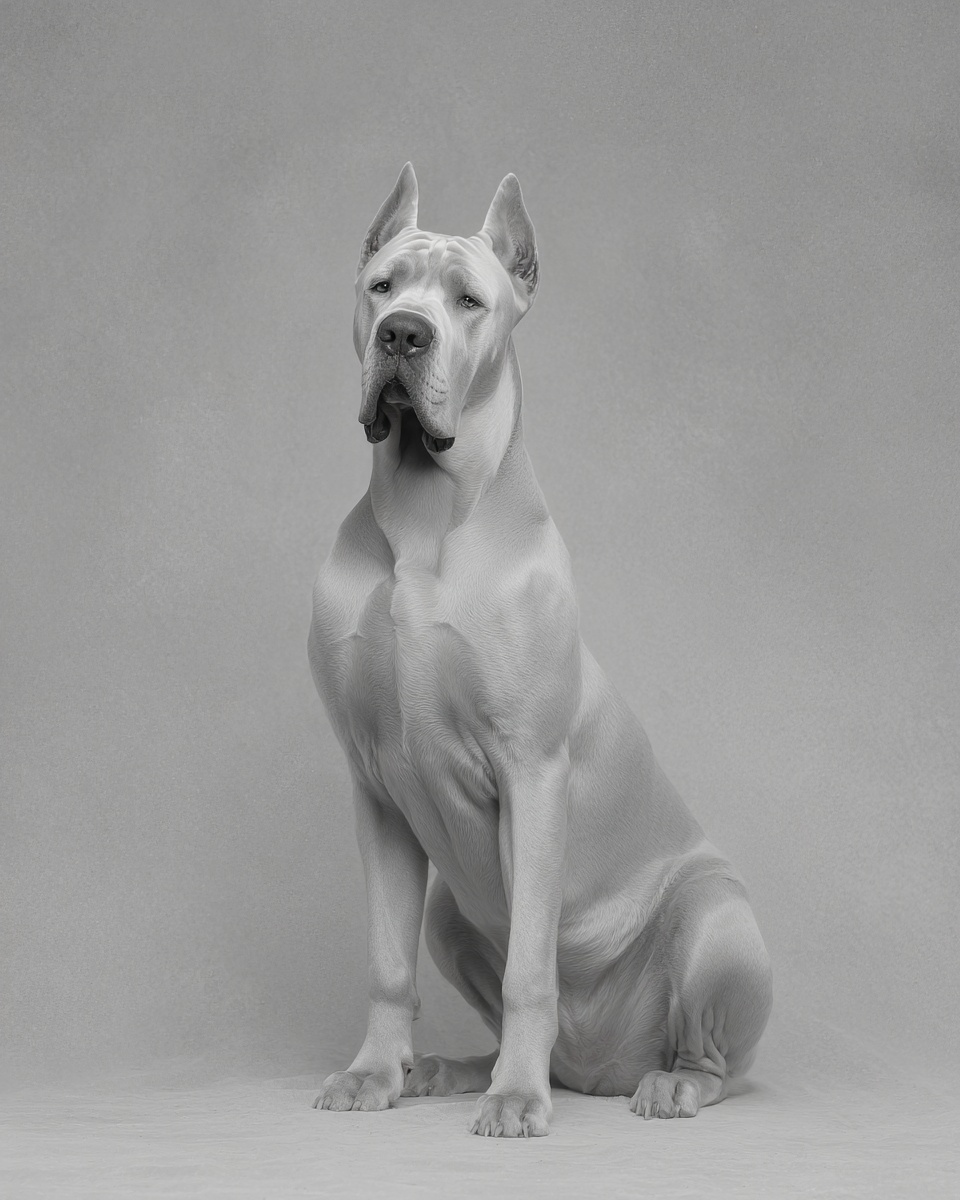Mastiff

Description
The Mastiff, also called the Old English Mastiff, is a massive breed with roots dating back to 3000 BC in Egyptian art. This breed's history includes roles as war dogs, estate guardians, and big-game hunters in medieval England. Adult males often weigh between 120 and 230 pounds, making them one of the heaviest dog breeds worldwide. Their imposing size comes with a calm and dignified demeanor, showing patience especially around children and other pets. Mastiffs are protective and can be cautious around strangers, requiring firm but gentle training to manage their stubborn streak. They thrive on moderate daily activity to stay fit and avoid excess weight. Their short double coat comes in apricot, brindle, or fawn, always paired with a distinctive black mask. Mastiffs carry a quiet confidence rather than loud barking, making them steady companions for families who appreciate their steady presence. Bottom line: Mastiffs combine ancient strength with a surprisingly gentle temperament.
Grooming
Mastiffs have a short double coat that sheds heavily during spring and fall. Regular brushing twice a week keeps loose hair under control, but daily grooming is necessary during seasonal sheds to manage the thick undercoat. Use an undercoat rake on dense areas to remove dead hair effectively without damaging the coat. Bathing every 6 to 8 weeks helps maintain skin health, but thorough drying afterward is essential to prevent moisture buildup under the dense coat. Avoid shaving the coat, as it disrupts the natural insulation and protection. Color care focuses on keeping the black mask clean and free of dirt buildup, especially around the muzzle. Apricot, brindle, and fawn coats may show dust easily, so wipe down with a damp cloth between baths if needed. Grooming checklist: - Brush 2× weekly; daily during heavy shedding - Use undercoat rake on thick patches - Bathe every 6–8 weeks, dry thoroughly - Spot clean black mask and face - Never shave the double coat Pro tip: Schedule a professional de-shed treatment every 6 to 8 weeks to keep shedding manageable and coat healthy.
Learn the Double routine:
→ Complete Double Grooming Guide
Walking
Mastiffs require about 50 minutes of walking daily, ideally in a single session to suit their moderate exercise needs. These dogs prefer steady, calm walks rather than vigorous activity, which helps maintain their weight and joint health. Avoid overly long or intense exercise, as their large size can strain joints if overworked. A consistent walking routine also supports mental stimulation and helps prevent boredom. Example routine: Start with a 10-minute warm-up stroll around the yard, followed by a 30-minute neighborhood walk at a relaxed pace. Finish with a 10-minute cool-down and some light play or obedience training to engage their mind. Bottom line: One well-paced daily walk keeps your Mastiff fit and content without overexertion.
Boarding
When boarding a Mastiff, provide a crate at least 48 inches long to accommodate their large frame comfortably. These dogs benefit from a predictable routine and slow introductions to new staff to reduce stress. Their playstyle is calm but can include bursts of gentle play, so staff should offer two active play blocks daily combined with scent or brain games to keep them mentally engaged. Enrichment activities like puzzle feeders or scent trails help prevent boredom and encourage natural problem-solving. Staff should monitor for signs of anxiety or restlessness, as Mastiffs can become uneasy in unfamiliar environments without a steady routine. Quiet spaces for rest and consistent feeding times support their well-being. Bottom line: Large crate, structured routine, and mental enrichment keep Mastiffs comfortable and happy during boarding.